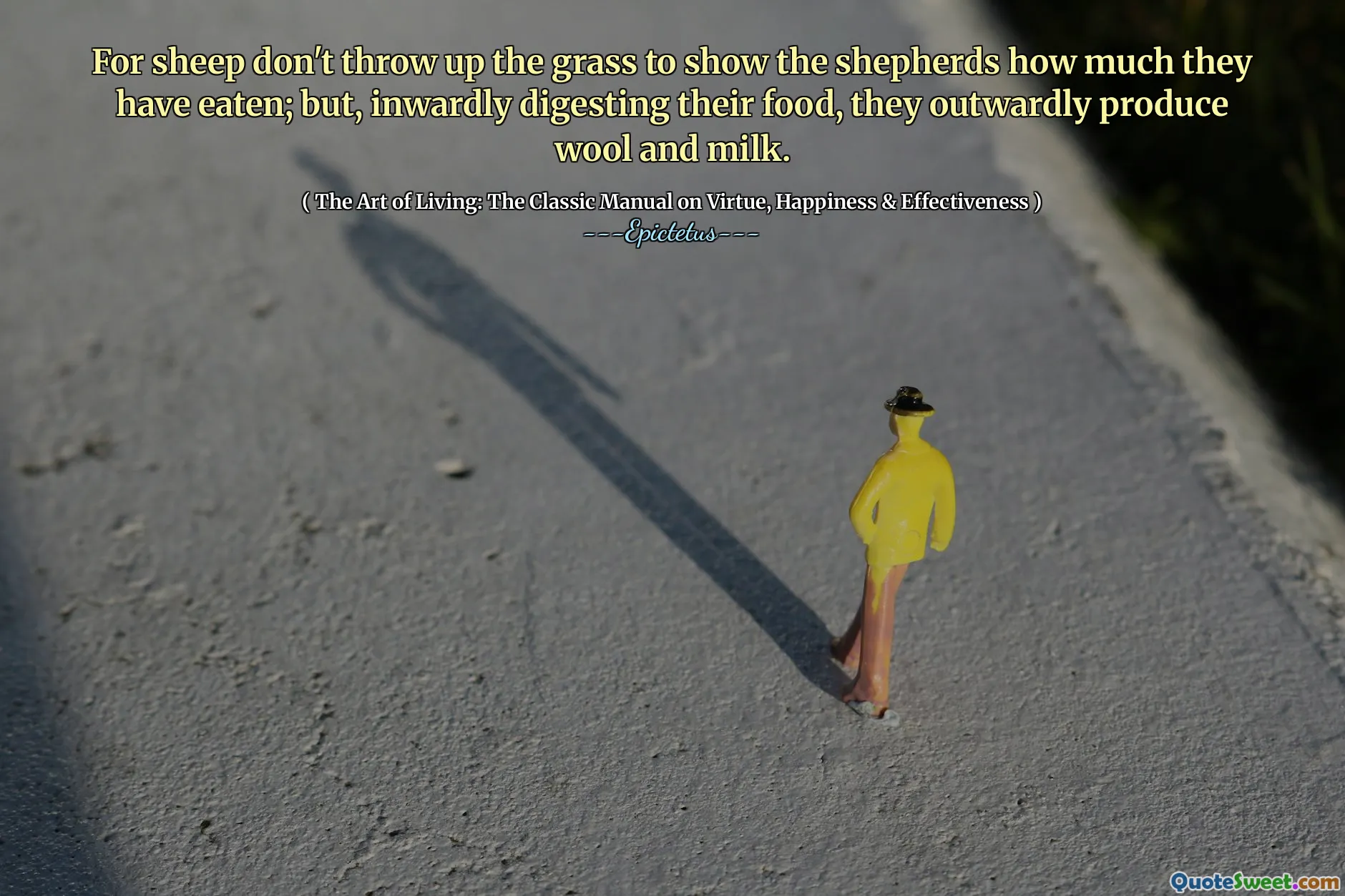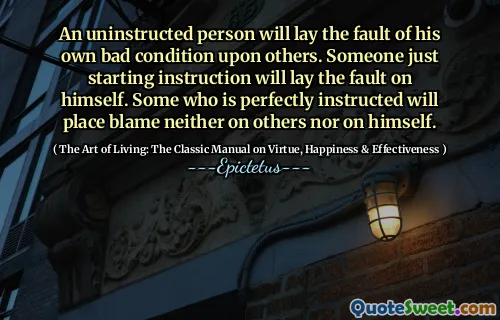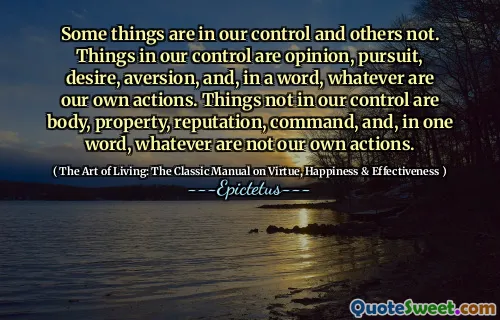
For sheep don't throw up the grass to show the shepherds how much they have eaten; but, inwardly digesting their food, they outwardly produce wool and milk.
📖 Epictetus
In Epictetus' work, he illustrates a profound lesson about the nature of productivity and the value of internal growth. He compares sheep to individuals, suggesting that just as sheep do not exhibit their consumption of grass to their shepherds, people should not feel the need to flaunt their efforts or achievements outwardly. The emphasis is on the quiet, internal process of growth and reflection rather than on external validation.
This metaphor emphasizes that true results, like wool and milk, stem from digesting experiences and knowledge internally. It encourages individuals to focus on personal development and the cultivation of virtues that contribute to a fulfilling life, rather than seeking approval from others about their accomplishments.








